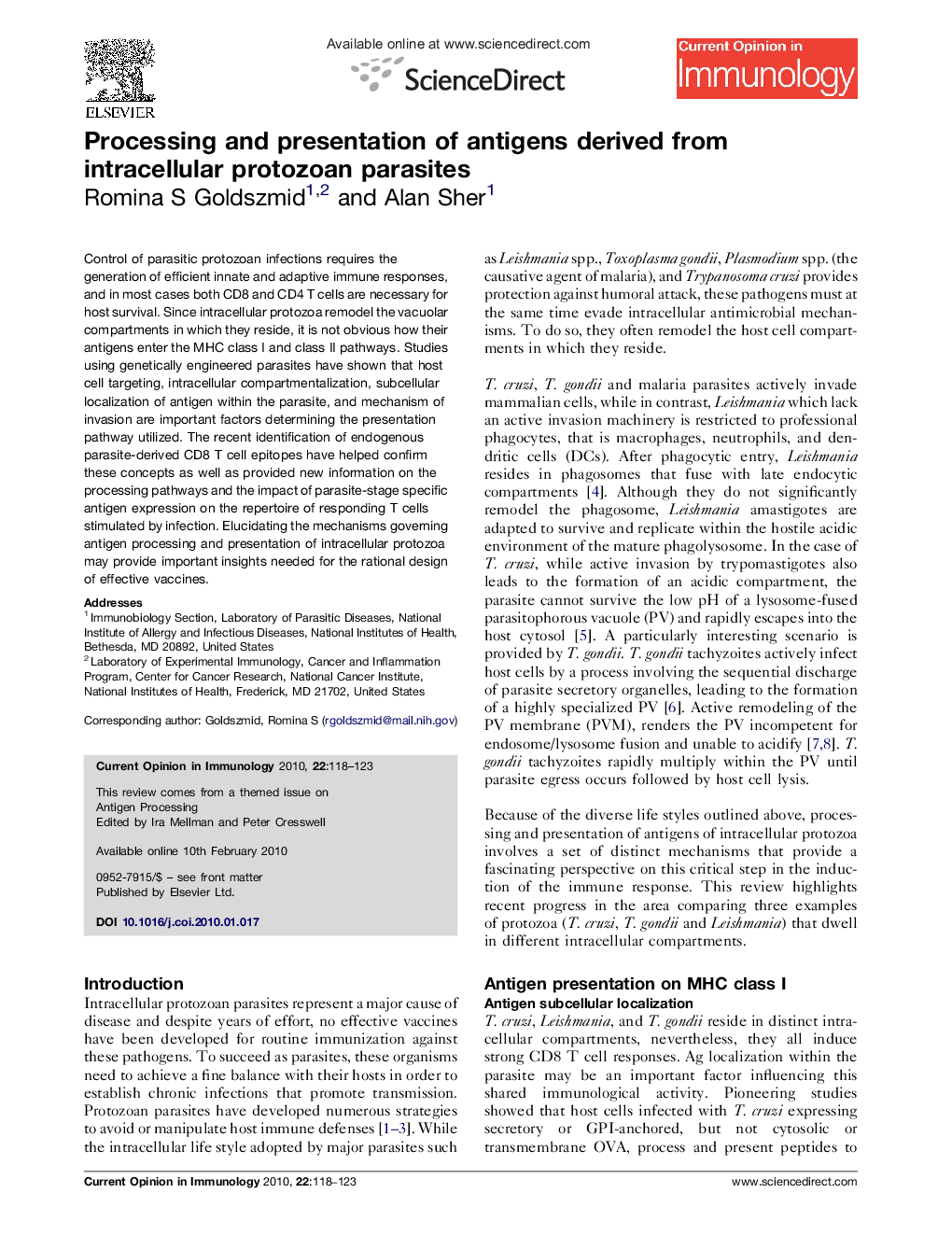| Article ID | Journal | Published Year | Pages | File Type |
|---|---|---|---|---|
| 3346103 | Current Opinion in Immunology | 2010 | 6 Pages |
Control of parasitic protozoan infections requires the generation of efficient innate and adaptive immune responses, and in most cases both CD8 and CD4 T cells are necessary for host survival. Since intracellular protozoa remodel the vacuolar compartments in which they reside, it is not obvious how their antigens enter the MHC class I and class II pathways. Studies using genetically engineered parasites have shown that host cell targeting, intracellular compartmentalization, subcellular localization of antigen within the parasite, and mechanism of invasion are important factors determining the presentation pathway utilized. The recent identification of endogenous parasite-derived CD8 T cell epitopes have helped confirm these concepts as well as provided new information on the processing pathways and the impact of parasite-stage specific antigen expression on the repertoire of responding T cells stimulated by infection. Elucidating the mechanisms governing antigen processing and presentation of intracellular protozoa may provide important insights needed for the rational design of effective vaccines.
